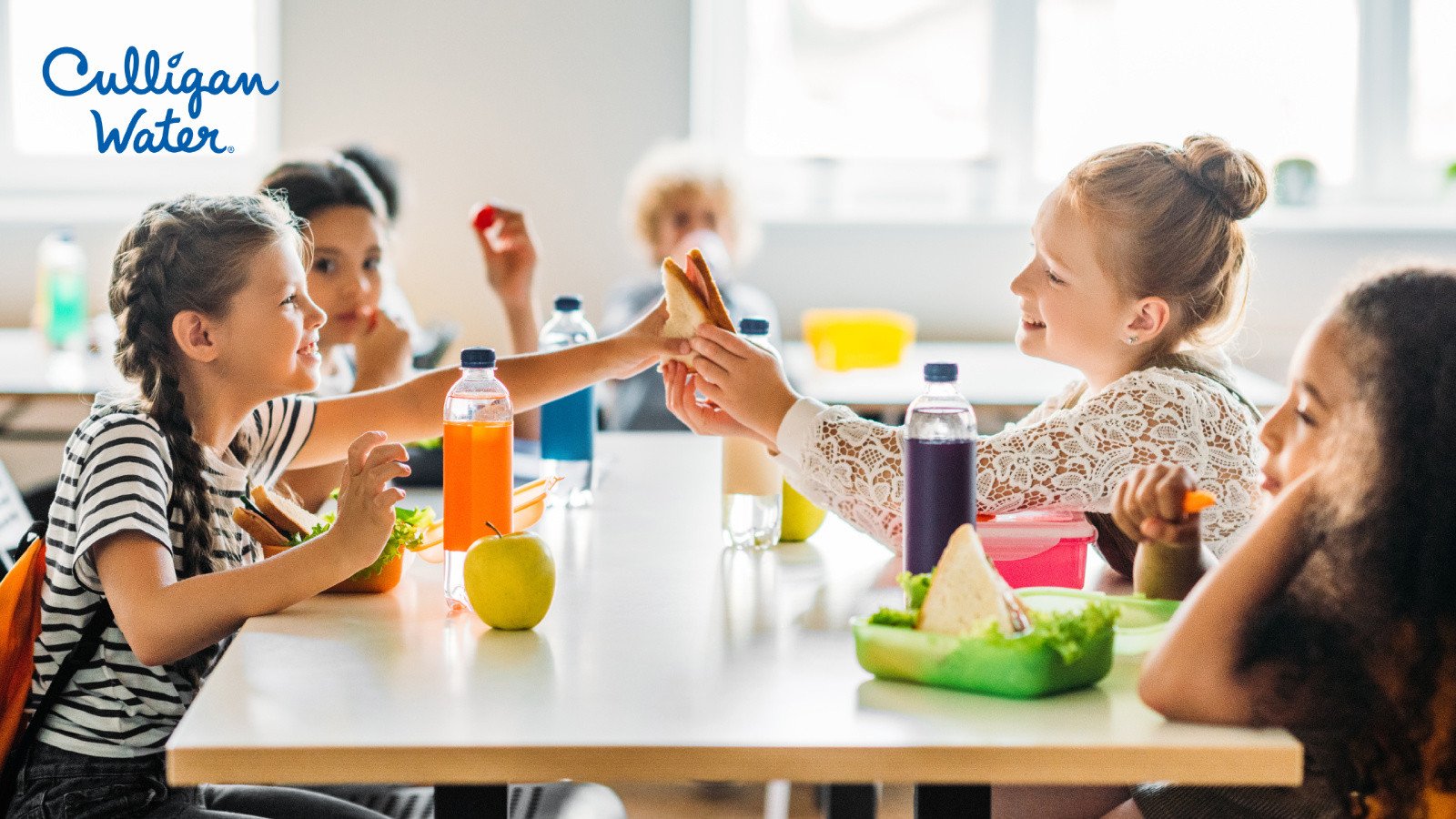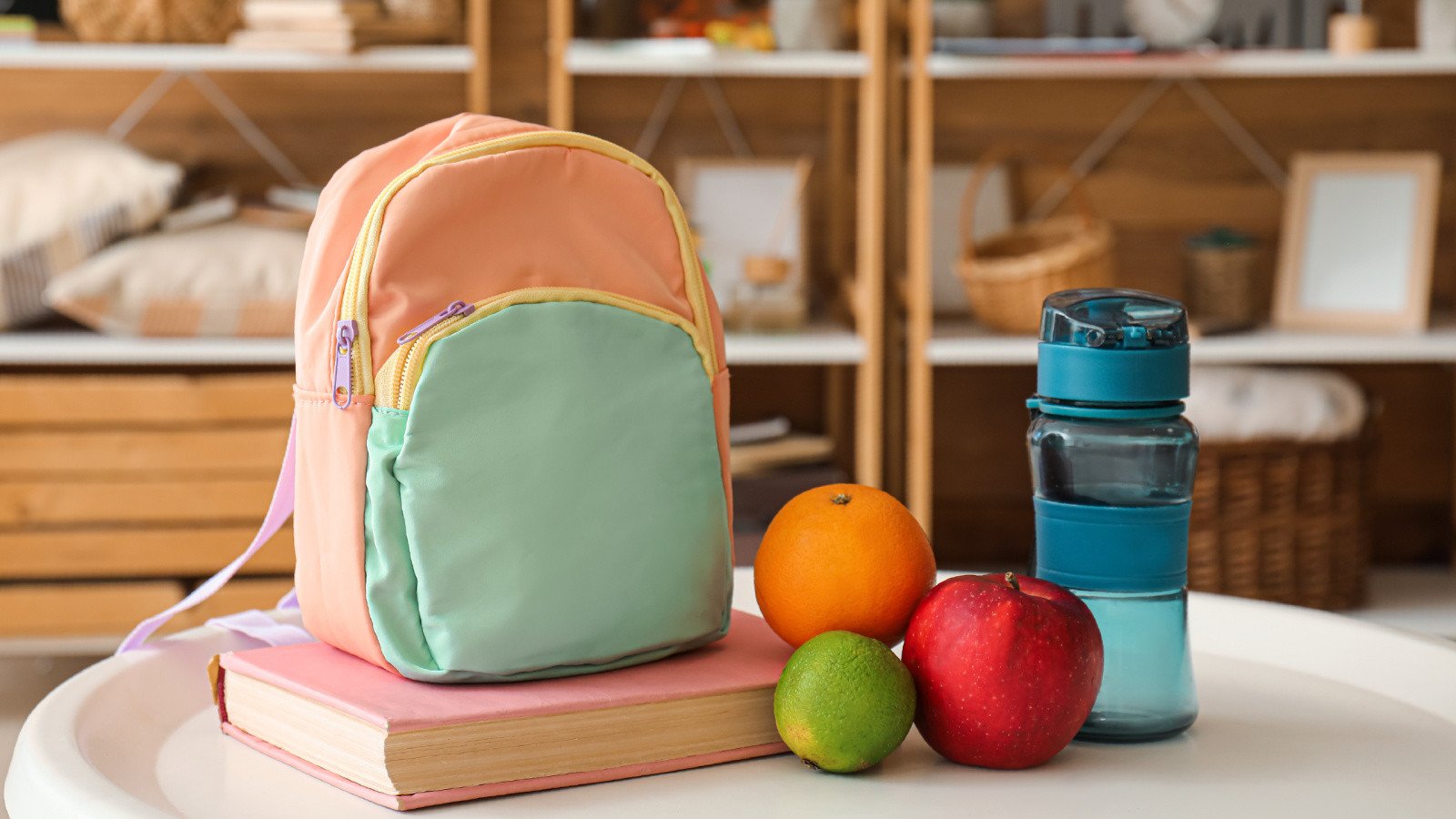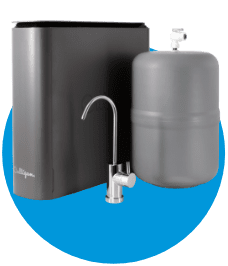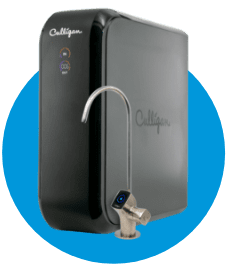Hydration Habits to Bring Back to School
Learn how you can help your child ace hydration this school year.
Posted in
Culligan Cares,
Culligan Nation,
Drinking Water,
Drinking Water System,
Healthy Body,
Healthy Home,
Healthy Life,
Home & Health,
Reverse Osmosis,
Tap Water

What’s in your drinking water? Find out with our free water test from your local Culligan water expert.
The busy back-to-school season is in full swing. Between shopping for school supplies, organizing schedules and keeping track of extracurricular activities, it can be a hectic time for parents.
As you navigate the hustle and bustle of starting a new school year, don’t forget to make hydration a priority. Read on to learn more about the importance of keeping your child hydrated in the classroom. And find out what you can do to help.
Why Is It Important For Kids to Stay Hydrated?
Let's talk about why it's important for kids to stay hydrated. On a typical day, kids spend between 6 hours and 30 minutes to 7 hours and 15 minutes in school. Because children spend so much of their time in the classroom, they're also consuming much of their daily drinking water at school.
Staying properly hydrated is important for optimal health and brain function. Drinking water helps kids stay alert and focused, can improve memory and regulates their body temperatures. It also reduces the risk for some chronic diseases, such as type 2 diabetes and heart disease.
Despite the known benefits of hydration, one in five children and adolescents do not drink any plain water during the day and about half of school-aged children are underhydrated. So, how much water should kids be drinking in a day? Let’s dive in.
How Much Water Should Children Drink in a Day?
The amount of water kids need in a day depends on a variety of factors including their age, activity level and weather.
Age
Kids between the ages of one and three should consume roughly two to four cups of water every day. Children between the ages of four and eight should drink at least five cups. When kids are between nine and 13 years old, they should increase their intake to seven to eight cups a day. While kids ages 14 and older should consume eight to 11 cups of quality water every day.
Activity Level
When determining the amount of water required for your child, it's important to note their activity level. Kids who are active in sports, walk to or from school or participate in other physical activities should drink more water than non-active children.
It is especially important to drink water after exercise. If your kids are running around, they should be drinking a few more cups of water once the activity is over. During the activity or exercise, they should drink smaller amounts of water to keep them hydrated.
Weather
It's important to pay attention to the weather. High temperatures and humidity levels cause dehydration faster than cooler temperatures and lower humidity levels. So be sure your kids are drinking more water if it's hot and sticky outside.
Tips For Keeping Your Child Hydrated at School

Making sure your kid drinks enough water every day is an essential part of keeping them happy and healthy. Follow these tips to help them build hydration habits that will last the entire school year.
1. Send Them to School With a Reusable Water Bottle
Your child's school likely has water fountains, but it's easier to bring a water bottle filled with cool, fresh water from home. Plus, there's a growing concern about the rise in lead levels in school water systems because of older plumbing. So, for peace of mind, make sure your child always carries a bottle of RO-filtered water from home. For added hydration, send them to school with two water bottles – one for their desk and one in their lunchbox.
2. Choose Backpacks With Pockets for Water Bottles
Most backpacks have special pockets just for carrying bottles, keeping them accessible and out of the way at the same time. Perfect for kids, right? Adding that to your shopping list is something you won't regret.
3. Pack Hydrating Foods in Their Lunch
Drinking water is the best way to stay hydrated, but eating hydrating foods is a great way to complement water intake. Including water-rich foods such as watermelon, grapes, strawberries, carrots and cucumbers in your kid’s lunch can help boost their hydration throughout the school day.
4. Skip the Sugary Drinks
Sugary drinks, like sports drinks, fruit juice and soda, can contain between five and 18 teaspoons of sugar per serving. That's a lot of empty calories. If your child prefers flavored beverages, opt for healthy fruit-infused water. You can also dilute their juice to help minimize added sugars and increase their water intake.
5. Choose a Reverse Osmosis (RO) Filter for Your Home
Since your home is the primary source of your family's daily drinking water, choosing a reverse osmosis filter can make all the difference to your family's health and well-being. That's because an RO reduces most of the chemical and biological contaminants commonly found in water.*
Culligan Drinking Water Solutions
Whether you want an endless supply of RO water or your priority is for a compact design that fits seamlessly into your home, we can help find the best system for you.
Below are a couple of the most popular Culligan reverse osmosis drinking water systems.

Culligan® Aquasential® Reverse Osmosis Drinking Water System:
- Up to seven stages of filtration with 12 interchangeable filters
- Certified to reduce 60 different contaminants
- Unlimited supply of safer water for just pennies a glass
- Smart option available

Culligan® Aquasential® Tankless Reverse Osmosis Drinking Water System:
- Elegant, space-saving design
- Four stages of filtration reduces contaminants by 95%
- Unlimited supply of safer water for just pennies a glass
- Smart option available
Getting Started
Whether they're in the classroom or at home, it’s important for children to have quality, great-tasting drinking water. Keep them happy, healthy and hydrated throughout the entire school year with the help of Culligan.
For more information about drinking water systems or Culligan water products, contact your local Culligan water expert or schedule a free water test today!
*Contaminants may not be in your water.
